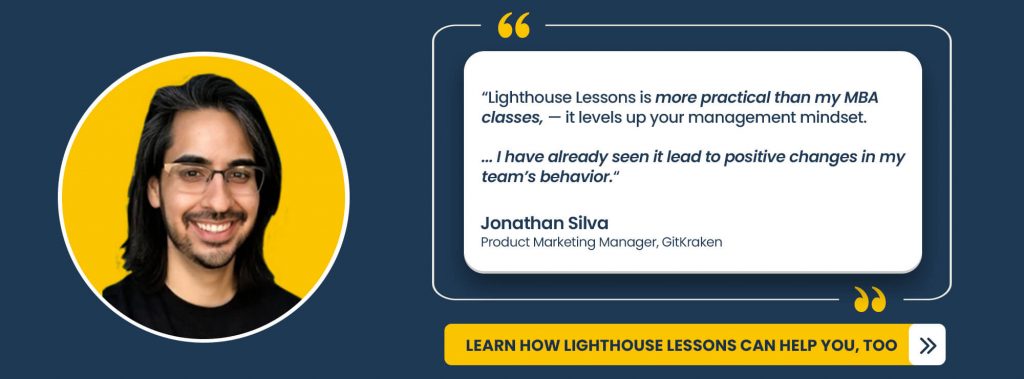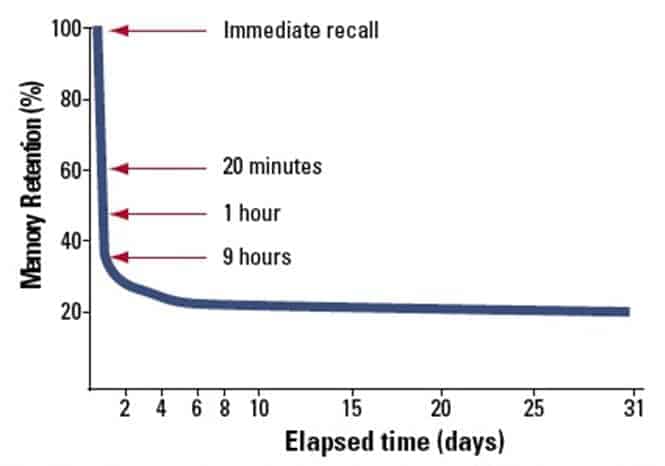How do you calculate the ROI of leadership training courses that focus on soft skills?
Welcome to the 10th edition of "Ask Lighthouse”, our weekly format that answers your questions about leadership and management. Each week, Jason Evanish, the CEO and founder of Lighthouse, and other leaders will share their advice for overcoming your biggest challenges based on their experience and lessons learned helping others.
The goal is to provide you with the nuance and detail that you can't find in our long-form posts that try to be more generally applicable.
This Week's Ask Lighthouse: Justifying Investing in Leadership Development Courses
Question: "I want to improve my team's soft skills, but it's hard to justify the spend on courses or training since it's hard to prove the ROI. What can I do to convince my company to let me do it?"
It's a well-known fact that career growth is the single most important perk people want at work, even more than a raise.
This has been confirmed by PwC, Mary Meeker's Internet Trend Report, Linkedin's Workplace Learning Report, and numerous other sources.
That's why supporting your team's growth by giving them opportunities to develop should be one of your main priorities as a leader.
But what if they need to improve a soft skill that's difficult to measure? How can you convince your company to set aside a budget for a course that focuses on a soft skill?
This edition of Ask Lighthouse gives you 4 ways to figure out the real worth of a training program for your team and justify any future purchases you'd like to make.
Table of Contents:
- Find a course that truly stands out
- Conduct internal surveys and match programs to your team's needs
- Get creative on what and how you measure
- Start small and consider every option
Find a course that truly stands out
Enrolling in a leadership development course benefits your team in a few ways. They get to work a new skill, broaden their horizon, and talk to a subject matter expert they can learn from.
However, the issue with most courses is their density; they usually last 1-2 days, or maybe even a week, and they're packed with a ton of content.
So how is that a bad thing? Shouldn't a training program be as detailed as possible?
While your team can certainly benefit from a content-rich course, the structure and timing of it both play an incredibly important role.
Teams overwhelmed by too much information in a short period of time are doomed to forget it. There's even a name for this: the Ebbinghaus Forgetting Curve.
Back in the 19th century, psychologist Hermann Ebbinghaus discovered that most of what we learn is quickly forgotten if we don't have a chance to apply it.
So, if you're doing an intensive program with an overwhelming amount of information in it, it's bound to be ineffective because:
- Your people will be missing a day or two of work or more due to training, which means they're taken out of their regular environment they could apply it in.
- When they return to work, they'll be playing catch up and won't have enough time to apply everything they've learned before they forget it.
Instead of getting the first course you see, carefully consider how its content is structured and how your people will acquire knowledge from it.
You can have the best content in the world, but if your team doesn't remember or apply what they learn, you won't get any real value from it.
Conduct internal surveys and match programs to your team's needs
You need to be intentional about what you buy and make sure it matches the skills your people are missing and want to work on. A strong match between your team's needs and course content turns the information from "nice to know” to "I can use this right now!”
To find the best solution, talk to your team about career development on a regular basis in your 1:1s - this will help you understand of what areas they need to work on.
You can also get good ideas from Performance Reviews. Not only do they allow you to see what areas your team seems to be weak in across the board - but by tying courses to performance review areas, it may be easier to get buy-in from your manager.
If you still don't know what those areas are, you can get even more intentional and perform internal surveys to figure out what your employees would benefit the most from.
But the feedback loop shouldn't stop there. Once your team completes a program, make sure to ask them for feedback as well. Figure out what worked and what didn't and use that information to find even better development courses in the future.
Ask them questions like:
- What value did you get from the program? What did you learn?
- How often are you applying what you've learned? What needs to happen for you to apply it more often?
- What challenges has this program/skill helped you with the most?
- What did you enjoy about the program? What could have been better?
- Did you find the format/instructor engaging?
Collecting all of this information will allow you to make a case for a potential future program, even if its ROI is difficult to put into exact numbers. It will either tell you that you need to try a different format and teacher, or that the format works and you can more easily justify investing in another program with them.
Get creative on what and how you measure
The impact of improving soft skills is often difficult to quantify, but that doesn't mean it's impossible.
General engagement and morale/employee satisfaction scores are a good place to start to see if a program you've chosen is having the effect you had hoped for.
You can also get specific to the program topic and think about how you can measure it:
- If you select a program that focuses on improving your managers' ability to get better performances out of disengaged employees, looking at engagement and employee satisfaction scores would be a legitimate way to justify its ROI.
- If you choose a program that teaches productivity techniques, you can measure your team's output before and after the program took place, or time saved.
You sometimes also need to think outside the box to prove the value of a program to your company. Let's take turnover rates as an example. We know a lack of growth can cause people to quit - in fact, 70% of people who participated in one of Gallup's surveys marked it as the top reason to leave their company.
On the other hand, SHRM reported that it costs a company 6 to 9 months of an employee's salary to replace them on average. If a training program you've selected is contributing to a lower turnover rate, you can justify the value of training based on that calculation.
Think about all the ways a particular training program ties back to your team's (im)measurable performance metrics and be ready to present that to justify investing in new ones.
Start small and consider every option
Training courses for your entire team can be extremely expensive, so it's no wonder your company wants you to justify their ROI.
Most programs will cost you north of $1000 per team member, which is why starting small may be a good idea. Look for less expensive options that may be more effective; a NY Times bestseller may sound cool to come to your office (or Zoom in) but often their talks are the same as their book, and they can easily cost 5-6 figures.
Rather than making a massive investment, do something you can scale up over time and that you don't have to commit an entire budget to. Start with enrolling 1-2 team members and see if the value they receive is worth the price.
You could also look for samples of the content beforehand and see if you feel like it will work. Another good idea would be to try the program yourself before you have your team join you (which costs more).
Whatever you do, make sure you compare all the options available to you before making your final decision. Programs such as Lighthouse Lessons can cost you as little as ~$100 per team member.
This makes them a low-risk investment since you can easily buy 1-2 editions and see if they're the right fit for you before getting them for your entire team.
Note: If you ever try Lighthouse Lessons and end up liking them, you can always get the Group Edition and level up all your managers together + receive a group discussion agenda each week to build deeper bonds and exchange ideas together.
Combine all the information available to make your case
To recap, uncovering the ROI of a training program for your team is not just about numbers. The more data and feedback you collect, the easier it will be for you to present that to your manager and justify signing up for a program in the future.
You can talk to them about:
- The structure of the program i.e. how your team will acquire, apply, and retain the knowledge they gain from it
- The feedback you've received from your team and if they feel they've received value from a program
- The measurable effects of a program on performance metrics, satisfaction rates, turnover rates, and anything else you think of
- Starting small and enrolling 1-2 team members to minimize the risk
By using these four approaches, you'll be able to discover what works for your team without breaking the bank and dive deeper into the ROI and immeasurable positive effects of the programs you choose with your team.
---
The newest edition of Lighthouse Lessons starts Sep 30th
Looking for a course that's highly actionable, flexible, and fits the schedule of even the busiest of managers, while fitting even modest budgets?
Then sign up for Lighthouse Lessons: Mastering Motivation.
We'll teach you everything you need to know about being an awesome motivator without requiring you to attend hours (or days) of overwhelming training.
The program's email-based lessons are designed so that you can review them at a time you prefer (each of them takes ~15 minutes), and you can easily catch up on them if you're away for a week or two.
In our latest program, we'll be covering the following topics to bring out the best in your team:
- Thriving in times of crisis
- Turning around underperformers
- Keeping your team engaged remotely,
- Mastering a variety of tools and approaches, so you can uniquely motivate each person on your team, regardless of their current circumstances, and more.
Learn how to motivate your team in better ways than money alone and reserve a spot for you and your team here.
Want to build up your management skills? Lighthouse Lessons can help you.
Our bite size, highly actionable programs are perfect for even the busiest of managers. Become a better leader like Jonathan Silva did by learning more and signing up here.





